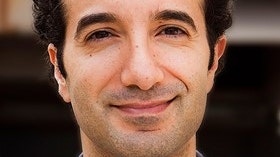Homepage
•
Learning Library
•
Blog
•
Learning happens in a zigzag and that's OK
Expand breadcrumbs
Expand breadcrumbs
- Learning Library
- Blog
- Learning happens in a zigzag and that's OK
- Homepage
- •
- Learning Library
- •
- Blog
- •
- Learning happens in a zigzag and that's OK
Learning happens in a zigzag and that's OK
By Julie Randles
June 24, 2017








